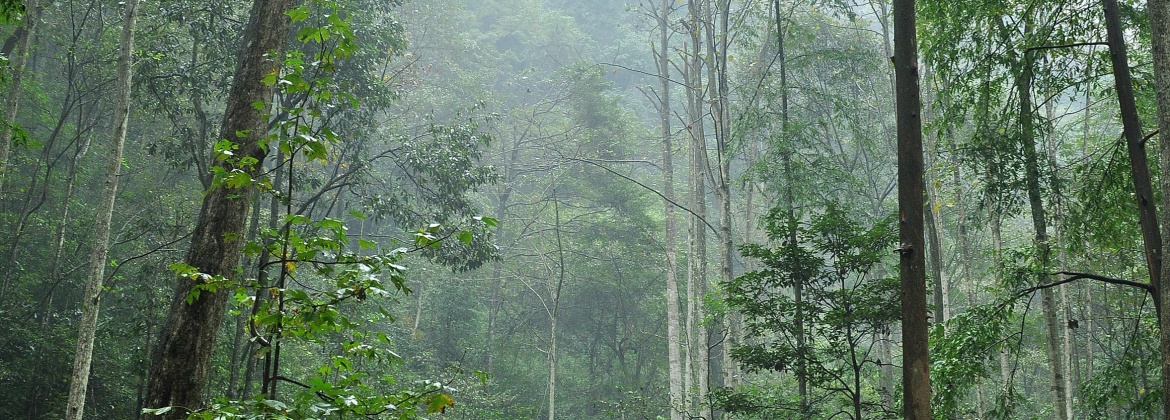September 2026
Full time
24 months
Suzhou
Download file
School of Science
This programme leads to a University of Liverpool degree which is recognised by Ministry of Education, China.
Knowledge and skills
This programme will provide students with the following:
- in-depth knowledge of the field of environmental sciences;
- cognitive skills required for research, such as evaluating existing studies, identifying research questions, deriving hypotheses, choosing proper research methods, and interpreting and presenting data concisely;
- advanced practical skills, such as data analysis, instrument and equipment operation, questionnaire and experimental design, and project management; and
- communication and professional skills, such as scientific writing and presentation, career development, manuscript preparation, journal selection, peer review systems, and health and safety awareness.
Advance your career with our cutting-edge MRes Environmental Science programme, where you will immerse yourself in a dynamic blend of ecology, Environmental, Social, and Governance (ESG), sustainable development, environmental chemistry, big data, and more. Our carefully crafted curriculum offers a truly interdisciplinary education, combining rigorous theoretical foundations with transformative hands-on research experiences.
Join a vibrant community of passionate learners and work alongside world-renowned experts dedicated to pioneering innovative solutions to today’s most urgent environmental challenges – including biodiversity loss, climate change, and global sustainability. Here, you will gain the knowledge, skills, and practical insight to become a leader in shaping a sustainable, resilient future. Enrol now and equip yourself to make a real and lasting impact on the planet and society!

Dr Lingyun Xiao
Programme Director
Modules
*Programme modules listed are illustrative only and subject to change. XJTLU students are advised to log in to the e-Bridge Portal to view the effectuated module structure.
Semester 1
Semester 2
Semester 3
Semester 4
Semester 1
Semester 2
During my studies in the MRes Environmental Sciences programme, I not only deepened my understanding of environmental and ecological knowledge but also systematically engaged in comprehensive research training. From formulating research questions, designing experiments, collecting and analysing data, to writing and refining papers, each step has given me a clearer insight into the research process.
My research focuses on the effectiveness of economic incentives in biodiversity conservation, which has also strengthened my appreciation of how conservation operates in practice. The academic staff have diverse research interests and are dedicated to supporting students, encouraging us to propose ideas and actively guiding our progress. Students come from different countries and backgrounds, making collaborations highly inspiring.
The programme also provides training in scientific writing, critical thinking, career development and access to employment resources, which are very valuable whether continuing to a PhD or entering the workforce. For me, this experience has enhanced my capabilities and clarified my future direction. If you are passionate about environmental science, eager to engage in research and keen to grow in an international and collaborative environment, this programme is an excellent starting point.

Fanjing Liu
Alumna of 2025, MRes Environmental Sciences
Studying in the MRes Environmental Sciences programme has been a truly transformative experience. The mix of rigorous coursework and opportunities to join cutting-edge research gave me the confidence and skills to tackle today’s most complex environmental issues. Whether delving into biodiversity, analysing big data, or exploring sustainable development, I benefited from dedicated mentorship and hands-on support from passionate academic staff and peers alike.
The interdisciplinary approach here is exceptional. It challenges you to see the bigger picture by connecting the threads between ecological science, ESG, data analytics, and policy. This perspective was crucial in shaping my vision for innovative solutions to global challenges like climate change and habitat loss. Through immersive group projects, fieldwork, and direct exposure to leading practitioners, I realised this programme did not just teach me about science – it taught me how to be a scientist, and in doing so, how to find my own voice.
If you want a programme that’s intellectually stimulating and truly prepares you to make a positive impact, I wholeheartedly recommend the MRes Environmental Science at XJTLU. It is an inspiring and globally connected community, and I’m proud to be a part of it.

Minyi Kau
Alumna of 2025, MRes Environmental Sciences
Careers
Graduates from this programme are well prepared to pursue a PhD at both domestic or international institutions. Other career opportunities include research scientists at research institutions, policymakers at governmental agencies, environmental educators at non-governmental organisations (NGOs) and environmental consultants in environment-related industries.























Overview
This MRes Environmental Sciences programme aims to produce graduates specialised in different areas within the environmental sciences. Modules cover the interdisciplinary knowledge and skills relevant to the field. The combination of taught modules and a large research project will produce a coherent and comprehensive degree. Students entering this programme can:
Potential research areas include (but not limited to):
Ecology
Environmental Sciences
Why study MRes Environmental Sciences at XJTLU?
The MRes Environmental Sciences programme at Xi’an Jiaotong-Liverpool University (XJTLU) offers a unique opportunity to learn and conduct research within a truly international and interdisciplinary environment. Led by world-renowned avian community ecologist Professor Eben Goodale, the research team includes energetic young researchers specialising in ecology and environmental science. This diverse creates a rich setting where theory meets cutting-edge research.
With an exceptionally low student-to-staff ratio close to 1:1, every master’s student receives individualised, hands-on guidance directly from frontline researchers. Over two years, you will benefit from close mentoring that guides you step by step into scientific research, helping you develop confidence and your own academic voice. This highly supportive and collaborative environment equips graduates with the skills and experience needed to address complex environmental challenges worldwide and to advance their academic and professional careers.